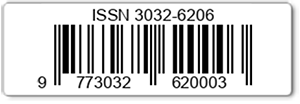The Influence Of Institutional Ownership, Company Size, Capital Intensity On Accounting Conservatism With Litigation Risk As A Moderation
Keywords:
Accounting Conservatism, Institutional Ownership, Company Size, Capital Intensity, Litigation RiskAbstract
This study aims to empirically examine the effect of Institutional Ownership, Firm Size, Capital Intensity, and Litigation Risk, either simultaneously or partially on Accounting Conservatism in Manufacturing Companies in the Basic Industrial Sector listed on the Indonesia Stock Exchange. This study uses a sample of basic industrial companies listed on the Indonesia Stock Exchange during the period 2016 – 2020. Based on the purposive sampling method, the number of basic industrial companies that are sampled in this study are 8 companies. Hypothesis testing using panel data regression analysis using the EViews 10 program. The results showed that capital intensity had a positive effect on accounting conservatism, firm size and litigation risk had a negative effect on accounting conservatism. While institutional ownership has no effect on accounting conservatism
References
Abbas, DS, & Sari, PA (2019). The influence of liquidity, independent commissioners, institutional ownership, and company size on financial distress. Pamulang University Accounting Scientific Journal, 7(2), 119-127.
Alkurdi, A., Al-Nimer, M., & Dabaghia, M. (2017). Accounting conservatism and ownership structure effect: A look at industrial and financial Jordanian listed companies. Journal of Environmental Accounting and Management, 5(2), 153–169. https://doi.org/10.5890/JEAM.2017.06.007
Asmarani, SA, & Purbawati, D. (2020). Analysis of the Effect of Liquidity, Leverage and Profitability on Financial Distress (Study of Manufacturing Companies in the Consumer Goods Industry Sector Listed on the IDX in the 2014-2018 Period). Journal of Business Administration, 9(3), 369-379.
Cahyaningsih, NAM and. (2020). Analysis of Factors Affecting Accounting Conservatism. Indonesian Accounting and Finance Studies, 3(1), 29–49. https://doi.org/10.21632/saki.3.1.29-49
Furwati, C., Abbas, DS, Hamdani, H., & Yahawi, SH (2022). THE INFLUENCE OF MANAGERIAL OWNERSHIP, DEBT CONVENANT AND LITIGATION RISK ON ACCOUNTING CONSERVATISM. Journal of Economics, Business and Management, 1(4), 82-99.
Hakim, MZ, & Nasution, AW (2020). The influence of profitability, liquidity, leverage, managerial ownership and institutional ownership on financial distress (Empirical study of property & real estate sector companies listed on the IDX for the 2016-2018 period). Competitive Journal of Accounting and Finance, 4(1), 94-105.
Hambali, M., Abbas, DSA, & Eksandy, A. (2021, June). The Influence of Leverage, Liquidity, Debt Covenant, Political Cost and Profitability on Accounting Conservatism (In Banking Companies Listed on the Indonesian Stock Exchange in 2017–2018). In Proceedings of the National Seminar on Economics and Business (pp. 462-476).
Hambali, M., Abbas, DSA, & Eksandy, A. (2021, June). The Influence of Leverage, Liquidity, Debt Covenant, Political Cost and Profitability on Accounting Conservatism (In Banking Companies Listed on the Indonesian Stock Exchange in 2017–2018). In Proceedings of the National Seminar on Economics and Business (pp. 462-476).
Hariyanto, E. (2020). Analysis of Factors That Influence Accounting Conservatism. XVIII(1), 116–129.
Husna, S. & JA (2017). The Influence of Debt Covenant, Bonus Plan, Political Cost and Litigation Risk on the Implementation of Accounting Conservatism in Manufacturing Companies. STIE Widya Wiwaha Business Studies, 25(1), 110–125. https://doi.org/10.32477/jkb.v25i1.233
Iskandar, OR (2016). The Influence of Debt Covenants, Bonus Plans, and Political Costs on Accounting Conservatism (Empirical Study of Manufacturing Companies in the Consumer Goods Industry Subsector Listed on the IDX in 2012-2015). 20121112052, 1–15.
Maulida, EA, Abbas, DS, Hidayat, I., & Hamdani, H. (2022). The Influence of Liquidity, Leverage, and Accounting Conservatism on Earnings Quality. Digital Business: Journal of Management Science and E-Commerce Publications, 1(3), 31-45.
Noviyanti, A., Hakim, MZ, & Abbas, DS (2021, June). The Influence of Debt Covenant, Company Size, Leverage, on Accounting Conservatism. In Proceedings of the National Seminar on Economics and Business (pp. 352-358).
Oktavia, M., Sinambela, E., & Spica, L. (2018). Factors influencing accounting conservatism. 21(2), 289–312.
Oktaviani, B. (2020). The Influence of Liquidity, Leverage, Sales Growth, Operating Capacity, and Company Size on Financial Distress. J-MABISYA, 1(1), 111-133.
Putra, IGBNP, Sari, PAMP, & Larasdiputra, GD (2019). The Influence of Institutional Ownership and Managerial Ownership on Accounting Conservatism. Economic Discourse (Journal of Economics, Business and Accounting), Vol.18(No.1), 41–51. https://ejournal.warmadewa.ac.id/index.php/wacana_ Ekonomi
Ramadhani, BS and T. (2016). Factors influencing conservatism. 23(2), 142–151.
Resimasari, AE, Abbas, DS, Zulaecha, HE, & Hidayat, I. (2023). The Influence of External Pressure, Leverage, and Company Size on Financial Statement Fraud. Journal of Economics and Management, 3(1), 13-25.
Sukarmanto, PP & E. (2020). The Influence of Institutional Ownership Structure and Leverage on Accounting Conservatism. Journal Of Accounting, 6, 651–654.
Tazkiya, H. (2019). The Influence of Company Characteristics, Corporate Governance, and CEO Retirement on Accounting Conservatism (Empirical Study of Manufacturing Companies Listed on the IDX in 2013-2017). 1–5.
Yulyanti, S., Abbas, DS, Hidayat, I., & Watiyarrahmah, W. (2022). The Influence of Fixed Asset Intensity, Capital Intensity, Sales Growth and Leverage on Tax Avoidance. JUMBIWIRA: Journal of Entrepreneurial Business Management, 1(3), 24-3
Downloads
Published
Issue
Section
License
Copyright (c) 2024 Desi Mardania., Dirvi Surya Abbas (Author)

This work is licensed under a Creative Commons Attribution 4.0 International License.
Simposium Ilmiah Akuntansi under the terms of a Creative Commons Attribution 4.0 International License / CC BY 4.0 This license permits anyone to copy and redistribute this material in any form or format, compose, modify, and make derivative works of this material for any purpose, including commercial purposes, so long as they include credit to the Author of the original work.










